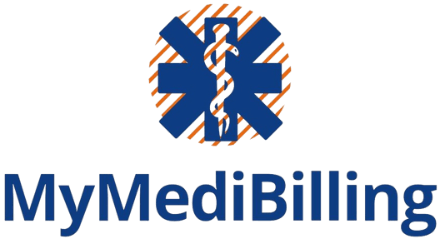Introduction
When it comes to credentialing services, it’s important to do your research before choosing a provider. Many healthcare professionals make the mistake of not thoroughly researching credentialing services and end up with a provider that doesn’t meet their needs. By taking the time to research different credentialing services, you can ensure that you find a provider that is reputable, reliable, and experienced in the field.
Look for reviews and testimonials from other healthcare professionals to get an idea of the quality of service that a credentialing provider offers. Additionally, consider reaching out to colleagues for recommendations on credentialing services that they have had positive experiences with. By doing your research, you can avoid making the mistake of choosing a subpar credentialing service that could negatively impact your career.
It’s also important to consider the specific needs of your practice when researching credentialing services. Not all providers offer the same services, so it’s crucial to find a provider that can meet your unique needs. For example, if you work in a specialized field of medicine, you’ll want to find a credentialing service that has experience working with professionals in your specialty.
Additionally, consider the size and scope of your practice when researching credentialing services. A larger practice may require a provider that can handle a higher volume of credentialing applications, while a smaller practice may benefit from a more personalized approach. By taking the time to research and consider your specific needs, you can avoid the mistake of choosing a credentialing service that isn’t the right fit for your practice.
Key Takeaways
- Not researching credentialing services can lead to choosing an unreliable provider
- Overlooking the importance of credentialing can result in missed career opportunities
- Failing to verify credentialing service credentials can lead to costly mistakes
- Neglecting to update credentialing information can result in outdated credentials
- Relying solely on online credentialing services may not provide accurate or comprehensive information
Overlooking the Importance of Credentialing
One of the most common mistakes that healthcare professionals make is overlooking the importance of credentialing. Credentialing is a critical process that ensures healthcare providers meet certain standards and qualifications in order to practice medicine. Without proper credentialing, healthcare professionals may not be able to work with certain insurance companies or healthcare facilities, which can significantly impact their ability to provide care to patients.
Additionally, proper credentialing is essential for maintaining compliance with state and federal regulations. By overlooking the importance of credentialing, healthcare professionals put themselves at risk for legal and financial consequences that can have a lasting impact on their careers. Furthermore, credentialing plays a crucial role in ensuring patient safety and quality of care.
When healthcare providers are properly credentialed, patients can have confidence that they are receiving care from qualified and competent professionals. Overlooking the importance of credentialing can lead to a lack of trust from patients and other healthcare professionals, which can damage your reputation and hinder your ability to build a successful practice. By recognizing the significance of credentialing and prioritizing this process, healthcare professionals can ensure that they are meeting the necessary standards to provide high-quality care while protecting their careers from potential pitfalls.
Failing to Verify Credentialing Service Credentials
Another common mistake that healthcare professionals make is failing to verify the credentials of the credentialing service they choose to work with. It’s essential to ensure that the credentialing service you choose is reputable and has the necessary qualifications to handle your credentialing needs. Failing to verify the credentials of a credentialing service can lead to subpar service, potential legal issues, and damage to your professional reputation.
Before choosing a credentialing service, take the time to verify their credentials, including their certifications, licenses, and any relevant accreditations. Additionally, consider researching the experience and track record of the credentialing service to ensure that they have a proven history of providing high-quality service to healthcare professionals. In addition to verifying the credentials of the credentialing service itself, it’s also important to ensure that the individuals working for the service are qualified and experienced in the field of credentialing.
The individuals handling your credentialing applications should have a thorough understanding of the credentialing process and be knowledgeable about the specific requirements for your practice and specialty. Failing to verify the credentials of the individuals working for the credentialing service can lead to errors in your applications, delays in the credentialing process, and potential compliance issues. By taking the time to thoroughly vet the credentials of both the service and its employees, you can avoid making the mistake of working with an unqualified or inexperienced credentialing provider.
Neglecting to Update Credentialing Information
| Mistake | Description |
|---|---|
| 1 | Not verifying credentials thoroughly |
| 2 | Ignoring expiration dates |
| 3 | Missing required documentation |
| 4 | Not keeping up with regulatory changes |
| 5 | Using outdated technology |
| 6 | Not communicating effectively with applicants |
| 7 | Overlooking background checks |
| 8 | Not having a clear process for appeals |
| 9 | Ignoring customer feedback |
| 10 | Not investing in staff training |
Neglecting to update credentialing information is another common mistake that healthcare professionals make. Credentialing is an ongoing process that requires regular updates and maintenance to ensure that your credentials remain current and valid. Failing to update your credentialing information can lead to lapses in coverage with insurance companies, loss of privileges at healthcare facilities, and potential legal issues.
It’s crucial to stay on top of your credentialing information and make updates as necessary to avoid these negative consequences. One way to avoid neglecting updates to your credentialing information is to establish a system for tracking important dates and deadlines related to your credentials. This can include expiration dates for licenses and certifications, as well as deadlines for submitting re-credentialing applications.
By staying organized and proactive about updating your credentialing information, you can ensure that you remain in compliance with all requirements and avoid potential issues with insurance companies and healthcare facilities. Additionally, consider setting reminders or alerts for important dates related to your credentials to help you stay on top of updates and avoid making the mistake of neglecting this critical aspect of your professional practice. Another important consideration when it comes to updating credentialing information is ensuring that you are aware of any changes or updates to regulations or requirements related to your credentials.
Healthcare regulations are constantly evolving, and it’s essential to stay informed about any changes that may impact your credentialing status. This can include changes to state licensing requirements, updates to insurance company policies, or revisions to facility privileging criteria. By staying informed about these changes and proactively updating your credentialing information as needed, you can avoid potential issues and maintain compliance with all necessary standards.
Relying Solely on Online Credentialing Services

While online credentialing services can offer convenience and efficiency, relying solely on these services can be a mistake for healthcare professionals. Online credentialing services may not always provide the level of personalized attention and support that some healthcare professionals require for their unique needs. Additionally, relying solely on online services can limit your ability to build relationships with the individuals handling your credentialing applications, which can be important for ensuring that your applications are processed accurately and efficiently.
It’s important for healthcare professionals to carefully consider their specific needs when choosing a credentialing service and not rely solely on online options without considering other alternatives. In some cases, working with a local or regional credentialing service may offer benefits such as more personalized support, greater familiarity with local regulations and requirements, and easier access for in-person meetings when necessary. By considering all available options for credentialing services and not relying solely on online providers, healthcare professionals can ensure that they find a provider that meets their unique needs and offers the level of support required for successful credentialing.
Not Understanding the Credentialing Process
A common mistake that healthcare professionals make is not fully understanding the credentialing process. Credentialing is a complex and multifaceted process that involves numerous steps and requirements, and healthcare professionals need to have a thorough understanding of this process to navigate it successfully. Without a clear understanding of the credentialing process, healthcare professionals may make mistakes in their applications, miss important deadlines, or overlook critical requirements that could impact their ability to practice medicine.
To avoid this mistake, healthcare professionals need to take the time to educate themselves about the credentialing process and seek out resources and support as needed. This can include attending training sessions or workshops on credentialing, seeking guidance from colleagues who have experience with the process, or consulting with professional organizations or associations for guidance. By taking proactive steps to understand the intricacies of the credentialing process, healthcare professionals can ensure that they are well-prepared to navigate this process successfully and avoid potential pitfalls.
Additionally, healthcare professionals need to stay informed about any changes or updates to the credentialing process that may impact their practice. This can include changes in regulations or requirements from insurance companies or healthcare facilities, updates to state licensing criteria, or revisions to industry standards for credentialing. By staying informed about these changes and understanding how they may impact their credentialing status, healthcare professionals can avoid making mistakes in their applications and ensure that they remain in compliance with all necessary standards.
Ignoring the Impact of Credentialing Mistakes on Your Career
Another critical mistake that healthcare professionals make is ignoring the potential impact of credentialing mistakes on their careers. Credentialing mistakes can have far-reaching consequences that can negatively impact a healthcare professional’s ability to practice medicine and build a successful career. This can include loss of privileges at healthcare facilities, termination from insurance company networks, legal issues related to non-compliance with regulations, damage to professional reputation, and financial repercussions.
Healthcare professionals need to recognize the potential impact of credentialing mistakes on their careers and take proactive steps to avoid these pitfalls. This includes prioritizing thoroughness and accuracy in all aspects of the credentialing process, staying informed about changes or updates that may impact their credentials, seeking out support and guidance as needed, and staying organized with updates and maintenance of their credentials.
By recognizing the potential consequences of credentialing mistakes and taking proactive steps to avoid them, healthcare professionals can protect their careers from potential setbacks and ensure that they can continue providing high-quality care to patients.
Conclusion
There are numerous common mistakes that healthcare professionals make when it comes to credentialing services. By taking proactive steps to avoid these pitfalls – such as thoroughly researching providers, understanding the importance of credentialing, and verifying credentials of services and individuals involved in the process – healthcare professionals can ensure that they are well-prepared to navigate this critical aspect of their professional practice successfully. Additionally, by staying informed about changes or updates related to their credentials and recognizing the potential impact of mistakes on their careers, healthcare professionals can protect themselves from potential setbacks and maintain compliance with all necessary standards for providing high-quality care to patients.

